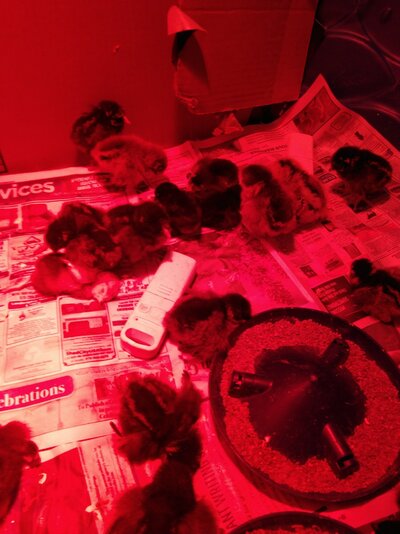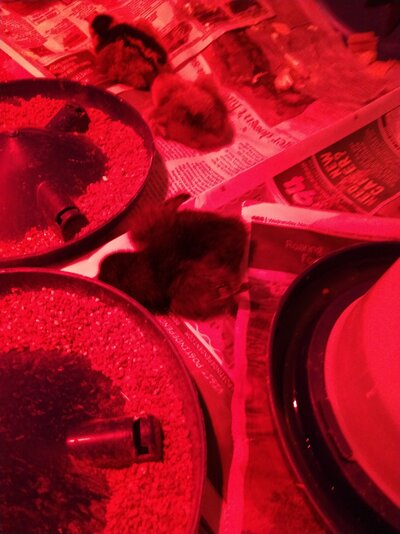Shelby Miller
In the Brooder
- May 21, 2022
- 9
- 23
- 18
This is my first time raising chicks. They do great for the first 2 days running around, eating, and drinking, and then they start to die a couple at a time. They are acting like they are too hot when the temp is 90 degrees in the brooder and are sleeping piled up away from the light. Where they are sleeping getting to be only 80 degrees, which seems too cold. Help on keeping the remaining chicks alive!






